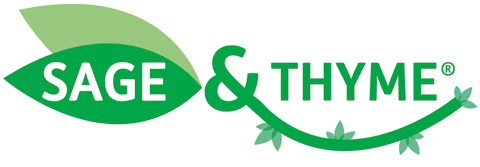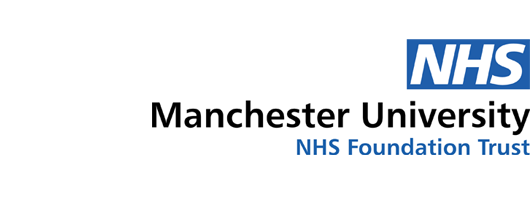The evidence
Summary of research findings on SAGE & THYME, plus publications, textbooks and independent evaluation
The evidence for the impact of SAGE & THYME training can be demonstrated at each level of Kirkpatrick's model for evaluating training:
- Reaction of learners to the training (e.g. enjoyable, engaging and relevant)
- Learning gained (e.g. acquire the intended knowledge, skills, attitude, confidence)
- Behaviour change (e.g. use what they learned in their job)
- Results (e.g. outcomes resulting from the training)
We have summarised the evidence below - the full details can be found in the published papers.
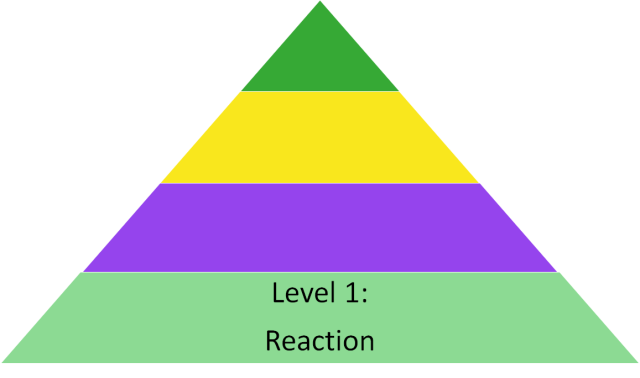

- Motivation: high post-workshop and sustained at 2 months
- Usefulness: high post-workshop and sustained at 2 months
- Self-confidence: significant increase
- Perceived competence: significant increase
- Plan to change practice: 95%
- Recommend training: 100%
Reaction needs to be positive for learning to be transferred into practice.
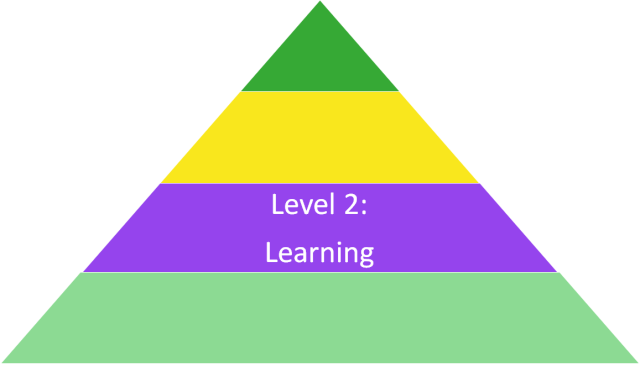
Knowledge:
Participants were asked to identify helpful behaviours in a film of an acted conversation:
- No change in control group after other training
- Significant increase in knowledge after SAGE & THYME training

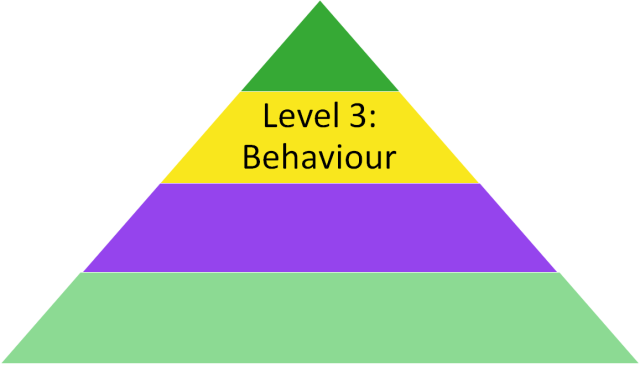

Self-efficacy is the perceived mastery of skills and outcome expectancy is the anticipated positive outcome of behaviour - these help to transfer learning into behaviour changes and are significantly increased after SAGE & THYME training (immediately and after 2 months).
Talking to a simulated patient:
Participants were filmed talking to a simulated patient and an expert rated behaviour pre and post training (blinded to order):
- Significant increase in helpful behaviour after SAGE & THYME training
Use of SAGE & THYME in conversations (2 weeks and 2 months) - staff report:
- Structure helpful
- Increased confidence
- Gave control
- Feel satisfied about supporting patients
- Conversations more patient-focussed
- Left patients feeling satisfied and empowered
- Use with others (not just patients)
- Motivated to use elements
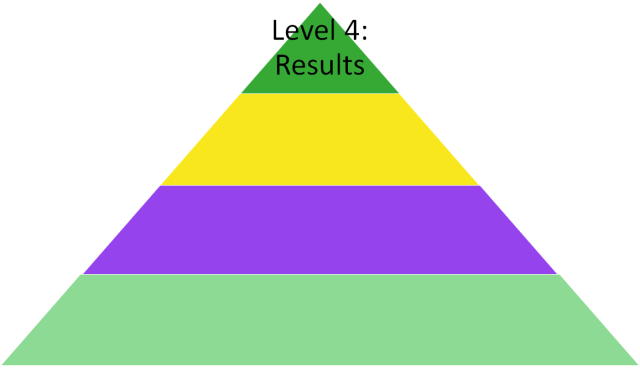
People tell stories about how using SAGE & THYME in conversations has helped others.

Research papers
Connolly M, Perryman J, McKenna Y, Orford J, Thomson L, Shuttleworth J, Cocksedge S. (2010). SAGE & THYME: A model for training health and social care professionals in patient-focussed support. Patient Education and Counseling; 79: 87-93.
Connolly M, Thomas JM, Orford J, Schofield N, Whiteside S, Morris J, Heaven C. (2014). The impact of the SAGE & THYME foundation level workshop on factors influencing communication skills in health care professionals. Journal of Continuing Education in the Health Professions; 34 (1): 37-46.
Griffiths J, Wilson C, Ewing G, Connolly M, Grande G (2015). Improving communication with palliative care cancer patients at home - a pilot study of SAGE & THYME communications skills model. Eur J Oncol Nurs: DOI: http://dx.doi.org/10.1016/j.ejon.2015.02.005
Journal articles
Brand S, Coyne E, Tomlin M, Rigby M (2014). Training renal staff to feel confident to respond to distressed patients. J Renal Nurs: 6 (6); 289-292.
Connolly M (2016). Listening skills 1: how to improve your listening skills. Nursing Times: 112 (45/46); 10-12.
Connolly M (2016). Listening skills 2: developing listening skills through practice. Nursing Times: 112 (45/46); 16-18.
Gregory J (2024). Understanding the communication skills that support nurses to provide person-centred care. Nursing Standard. doi: 10.7748/ns.2024.e12132
Griffiths J (2017). Person-centred communication for emotional support in district nursing: SAGE and THYME model. British Journal of Community Nursing; 22 (12): 593-597.
Martin ASH, Costello J, Griffiths J (2017). Communication in palliative care: the applicability of the SAGE and THYME model in Singapore. International Journal of Palliative Nursing; 23 (6): 288-295.
Petley R (2017). How a model of communication can assist nurses to foster hope when communicating with patients living with a terminal prognosis. Religions; 8 (10): 277
Ang SH (2019). Promoting effective nurse-patient communication in palliative care using the SAGE & THYME model: can it be implemented cross-culturally? The Open Nursing Journal; 13: 153-155.
Reports and textbooks
The SAGE & THYME model and its training has been picked up by a number of textbooks, independent reports, articles and strategy documents:
Getting It Right - End of life care in advanced kidney disease
Communication skills in end stage respiratory disease
Chartered Society of Physiotherapy Frontline Magazine
Department of Health: One chance to get it right
Macmillan report: How we can support and empower NHS staff to deliver a good experience of care to patients
The Royal Marsden Manual of Clinical Nursing Procedures (10th edition, March 2020) - chapter 4 on communication.
York Teaching Hospital Staff Matters newsletter (March 2016)
Respiratory Nursing at a Glance - Wendy Preston and Carol Kelly (2017). Wiley Blackwell, Chichester
Oxford Textbook of Communication in Oncology and Palliative Care (2017), Oxford University Press, Oxford - chapter 24 on SAGE & THYME model
Podcasts
The Hearing Aid podcast recorded in March 2019 on 'communication wih relatives' talks about how SAGE & THYME can be used in conversations - access it here. (You need to provide your email address and name to be able to play the podcast).

Imperial College Healthcare NHS Trust
Imperial College Healthcare NHS Trust investigated whether staff could recall what was taught in the SAGE & THYME foundation level workshop a few months after receiving this communication skills training.
They found that 3-6 months post-workshop, over 60% of staff reported remembering "a lot" of what was taught during the workshop and over 30% reported that the training had impacted on their practice "a lot".
Imperial College Healthcare evaluation
Leeds Teaching Hospitals NHS Trust
In 2014, Leeds Teaching Hospitals NHS Trust presented the findings of their evaluation on teaching the SAGE & THYME model to renal staff at the Trust's annual Nursing and Midwifery conference.
In 2015, Emma Waters conducted some research, commissioned by Dr Gary Latchford in the Department of Clinical and Health Psychology to evaluate the SAGE & THYME Foundation Level workshop and determine whether participants use the training in their day-to-day practice using semi-structured interviews.
All of the participants in the study said that the workshop had influenced their practice in some way.
NHS Tayside
NHS Tayside has produced a report evaluating data collected from the questionnaire in the delegate pack completed at the end of the workshop, and also 6 months after the workshop (to determine the impact of the training at Kirkpatrick level 2).
- In their follow-up data (response rate of 28%), they found that 95% reported SAGE & THYME to be of some help, although 27.3% had never used the model in practice – some reasons are given (e.g. not had the opportunity).
- Those that had used the SAGE & THYME model (either partially or fully) in general found it easy to use.
- Interestingly, those people who felt that they already had a lot of the skills taught, still found the workshop helpful/confirmation that they were doing the right thing.
- Examples of how SAGE & THYME has been used in practice are given.
- The factors that hinder the model’s use are what we would expect (e.g. lack of time/opportunity).
NHS Tayside evaluation
Nottingham University Hospitals NHS Trust
Nottingham University Hospitals NHS Trust presented the findings of their evaluation with renal staff on 2 May 2014 at UK Kidney Week (jointly hosted by the British Renal Society and the Renal Association) in Glasgow
Nottingham University Hospitals renal staff evaluation
South Central Strategic Health Authority
South Central Strategic Health Authority (in collaboration with the University of Southampton, Royal Berkshire NHS Foundation Trust and Oakhaven Hospice) evaluated the SAGE & THYME Foundation Level workshop training for over 2,500 health and social care staff.
The findings were presented at the International Pstcho-Oncology Society (IPOS) conference in Brisbane, Australia in November 2012.
South Central SHA evaluation
The University of Northampton
The University of Northampton Institute of Health and Wellbeing has evaluated the SAGE & THYME foundation level workshop, as one component in a series of multi-professional and multi-agency training courses run, to ensure the delivery of high quality services to frail and older people in Northampton.
- The Northamptonshire Local Education and Training Council (LETC) received funding from Health Education England to run and evaluate a suite of training courses (including SAGE & THYME) centred around: prevention and enabling self-care; geriatric assessment and personalised care planning; management of long term conditions; and end of life care.
- The SAGE & THYME foundation level workshop was delivered by the Northamptonshire Healthcare NHS Foundation Trust.
- The University’s report highlighted that the SAGE & THYME (S&T) workshop “engenders a sense that this was a well presented, easy to follow communication course which could be applied to practice easily”. A summary of the main findings from the report that relate to SAGE & THYME can be downloaded below.
The University of Northampton evaluation summary
The University of Manchester
The University of Manchester conducted an evaluation on using the SAGE & THYME Foundation Level workshops to improve the psychological support provided by district nurses to patients in palliative home care.
The University of Manchester research with district nurses
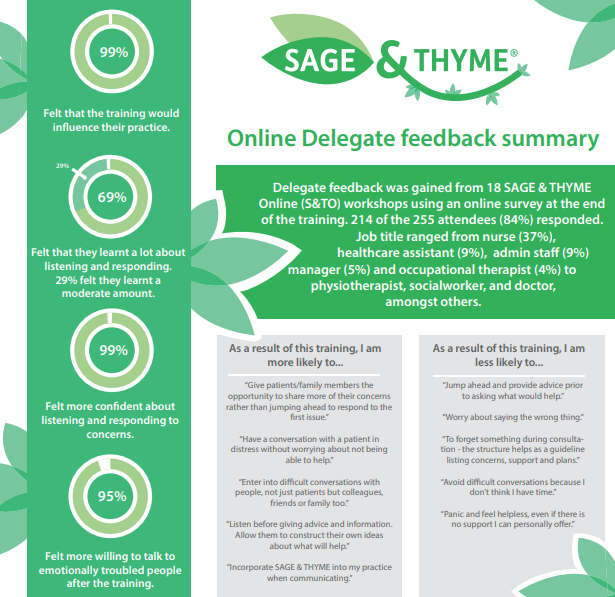
SAGE & THYME Online has been evaluated by us asking delegates from 18 workshops for feedback on the training:
- 84% of the 225 delegates completed the evaluation form
- 99% felt more confident about listening and responding to concerns
- 95% felt more willing to talk to emotionally troubled people
- 99% felt that the training would influence their practice.

SAGE & THYME Online evaluation
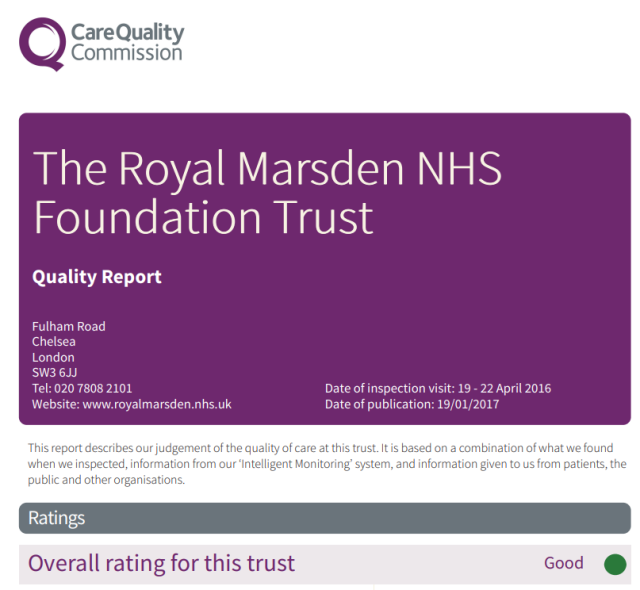

The SAGE & THYME training has been highlighted as good practice in the following CQC reports:
- The Royal Marsden NHS Foundation Trust - quality report (April 2016) - the SAGE & THYME model is used to support compassionate care.
- Guy's and St Thomas' NHS Foundation Trust - report (Sept 2015) - the SAGE & THYME training helps to support end of life care along with other initiatives such as the AMBER care bundle
Evaluation
An evaluation of the workshops with over 400 participants has been carried out.
- This showed that the workshop significantly increased from pre to post workshop, staff confidence in starting a conversation about advance care planning or end of life care and also in responding to concerns raised during such a conversation.
- Participants also showed a significant increase in perceived confidence in conducting an advance care planning/end of life care conversation.
- In addition, 74% of participants said they would definitely change their practice as a result of the workshop and 88% would definitely recommend the workshop to others.
SAGE and THYME ACP workshop evaluation report
Reports and textbooks
Palliative and End of Life Care Strategy for Northern Ireland
Advance Care Planning in End of Life Care (first edition) - Keri Thomas, Ben Lobo. Oxford University Press, Oxford, 2011.
Advance Care Planning in End of Life Care (second edition) - Keri Thomas, Ben Lobo and Karen Detering. Oxford University Press, Oxford, 2017.
